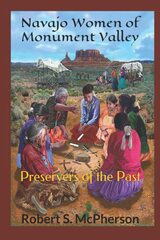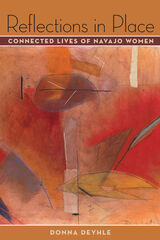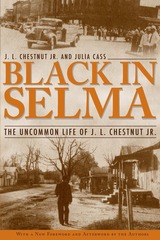
"McPherson, through this oral history of Navajo Women living in Monument Valley, provides a unique story of cultural understanding specific to the area. From personal experience and a shared heritage, these women explain their early struggles in life, religious beliefs and sacred teachings, daily activities of a traditional family, and later, battling against cultural loss. Today's rapidly changing world challenges these elders while enticing the young to forget what it means to be Diné. Here, these women share what they want the youth to know. I highly recommend this book to those who wish to learn about the past, understand the present, and consider the future."
—Ronald P. Maldonado, Navajo Nation Cultural Resource Supervisor
"The teachings and stories presented here are fascinating and important. When reading them, I heard my granmother's and aunt's voices, connecting me to the past while strengthening my understanding of Navajo culture. It is the women who are the heard and soul of preserving this information as they guide youth into the future. Here that wisdom becomes real. Those interested in a balanced presentation of the difficult, yet rewarding live of Navajo elders will be highly rewarded by learning from this book"
—Charlotte Nez Lacy, Heritage Language Educator/Translator

As a recognized authority on the subject, qualified by multiple degrees in racial and American Indian studies, Deyhle is able to chronicle the lives and “survivance” of three Navajo women in a way that is simultaneously ethnographic and moving. Her critique of the U.S. education system’s underlying yet very real tendency toward structural discrimination takes shape in elegant prose that moves freely into and out of time and place. The combination of substantive sources and touching personal experience forms a profound and enduring narrative of critical and current importance.
While this book stands as a powerful contribution to American Indian studies, its compelling human elements will extend its appeal to anyone concerned with the ongoing plight of American Indians in the education system.
READERS
Browse our collection.
PUBLISHERS
See BiblioVault's publisher services.
STUDENT SERVICES
Files for college accessibility offices.
UChicago Accessibility Resources
home | accessibility | search | about | contact us
BiblioVault ® 2001 - 2024
The University of Chicago Press









